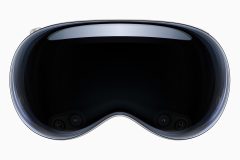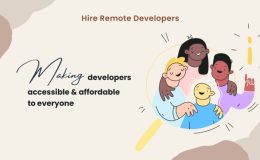On Wednesday, a new Linux-based open source mobile operating system, Tizen, was jointly launched by Linux Foundation and the LiMo Foundation. The standards-based Web technology will be the benchmark for designing apps on this platform. Tizen is coming as some sort of replacement for the failed MeeGo project and it will be supported by Samsung and Intel. Recall that MeeGo was jointly supported by Nokia and Intel but when Nokia dropped Linux for Microsoft Windows Phone 7 operating system, MeeGo began to melt down and rumors circulated that Intel would drop the project although, Intel denied the reports and claimed that it was “fully committed” to MeeGo. Nevertheless, MeeGo eventually transited to Tizen and Intel’s Imad Sousou said that the new plan for an HTML-based mobile environment necessitated a clean break as MeeGo didn’t have the capacity to achieve the new vision.
“Why not just evolve MeeGo? We believe the future belongs to HTML5-based applications, outside of a relatively small percentage of apps, and we are firmly convinced that our investment needs to shift toward HTML5. Shifting to HTML5 doesn’t just mean slapping a web runtime on an existing Linux, even one aimed at mobile, as MeeGo has been,” he wrote. “Over the next couple of months, we will be working very hard to make sure that users of MeeGo can easily transition to Tizen.”
The complete details of the transition are not clear for now but the executive director of the Linux Foundation said that some existing MeeGo technologies will be fostered in Tizen. He also said that the MeeGo project will not be completely swept under the carpet as it will coexist with Tizen in a very limited capacity. MeeGo will not be totally crashed for the benefit of community members who wish to continue to push it forward. However, the Linux Foundation undoubtedly sees Tizen as the way forward for mobile industry stakeholders. As for Tizen, its HTML-focused vision seem to draw its inspiration from HP’s gutted webOS and Mozilla’s Boot to Gecko project. Intel’s performance with the MeeGo Project has been quite poor and it is expected that Samsung’s real-world track record in the production of consumer electronics will give the Tizen project some credibility. Although Samsung is one of very few companies that developed a MeeGo netbook, the company is deeply rooted in Android, Windows Phone 7, and its own Bada operating system.
The Tizen OS has its sights on a wide variety of products which include smartphones, netbooks, tablets, set-top boxes, televisions, and vehicle computing systems. The official reason for Samsung’s interest in Tizen has not been made public but it is believed that Google’s acquisition of Motorola may affect its position in the Android ecosystem. Also, it is possible that the company wants to develop one large application ecosystem that can handle all its products. It should be noted that Tizen will be throwing the existing MeeGo community and a lot of open source labor under the bus by starting over on the userspace stack and switching to a new set of development tools. This could make it quite difficult to convince existing contributors and third-party developers who were affected by MeeGo’s meltdown to be involved with Tizen. In the nearest feature, we expect to see some Tizen powered devices from Samsung Electronics.
Source Ars Technica


















